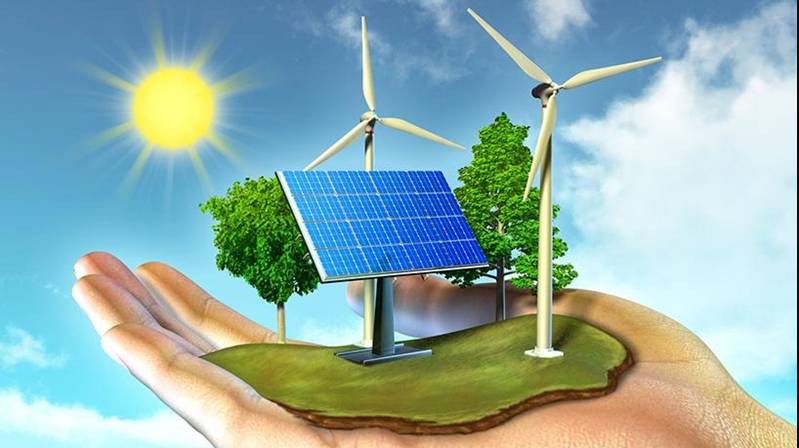As the global climate crisis looms large, Nigeria stands at a pivotal crossroads in its pursuit of a sustainable energy future. The nation, blessed with abundant natural resources, holds the key to combating climate change through a transition to renewable energy. This article delves into the current state of renewable energy in Nigeria, examining the challenges and opportunities that lie ahead in this pursuit.
Nigeria, like many African countries, faces the brunt of climate change impacts, ranging from extreme weather events to rising sea levels. The effects of climate change disrupt agriculture, threaten food security, and exacerbate existing social and economic inequalities. As a nation heavily reliant on fossil fuels for its energy needs, Nigeria’s contribution to greenhouse gas emissions cannot be ignored.
As of today, renewable energy sources accounted for only a fraction of Nigeria’s energy mix, with the majority still being sourced from fossil fuels, particularly oil and gas. This heavy dependence on non-renewable resources not only perpetuates environmental degradation but also poses challenges in terms of energy security and affordability for its growing population.
The transition to renewable energy in Nigeria is not without its hurdles. Inadequate infrastructure, limited access to financing, and policy gaps have impeded progress in the renewable energy sector. However, the nation’s immense potential in solar, wind, hydropower, and biomass resources presents a unique opportunity to reshape its energy landscape.
Practical and Innovative Solutions for Nigeria’s Renewable Energy Transition:
- Off-Grid Solar Power Systems:
Nigeria has a vast rural population with limited access to the national power grid. Implementing
off-grid solar power systems can revolutionize energy access for these communities. By distributing solar panels and energy storage systems, households and small businesses can harness clean and reliable electricity, reducing dependence on fossil fuels and promoting sustainable development. Innovative financing models, such as pay-as-you-go schemes and microloans, can make these systems affordable and accessible to a wider audience. - Energy-Efficient Smart Cities:As urbanization continues to shape Nigeria’s landscape, adopting
energy-efficient smart city solutions can revolutionize urban living. Integrating renewable energy
sources, such as solar panels on buildings, wind turbines, and geothermal heating and cooling
systems, can power urban centers sustainably. Advanced technology, like smart grids and IoT-enabled energy management systems, can optimize energy consumption and reduce wastage. By building green infrastructure and promoting eco-friendly transportation, cities can become beacons of sustainable living. - Hydroelectric Power Expansion: Nigeria’s vast water resources offer immense potential for
hydroelectric power generation. Investing in the expansion of existing hydropower plants and developing new projects can significantly bolster the country’s renewable energy capacity. For instance, the construction of smaller, run-of-the-river hydropower projects can be more environmentally friendly and socially inclusive, as they have minimal impact on ecosystems an require less displacement of communities. - Hydroelectric Power Expansion: Nigeria’s vast water resources offer immense potential for hydroelectric power generation. Investing in the expansion of existing hydropower plants and developing new projects can significantly bolster the country’s renewable energy capacity. For instance, the construction of smaller, run-of-the-river hydropower projects can be more environmentally friendly and socially inclusive, as they have minimal impact on ecosystems and require less displacement of communities.
- Waste-to-Energy Solutions: Nigeria faces significant waste management challenges, particularly in its urban centers. Embracing waste-to-energy technologies can turn this problem into an opportunity. Innovative waste management practices, such as anaerobic digestion and incineration, can convert organic waste into biogas or electricity. This not only reduces greenhouse gas emissions from landfills but also generates clean energy from a previously untapped resource. Implementing waste-to-energy projects in partnership with local governments and private enterprises can promote sustainable urban development and address environmental and energy challenges simultaneously.
- In conclusion, transitioning to renewable energy is a crucial step for Nigeria’s sustainable development and climate change mitigation efforts. By adopting innovative and practical approaches, such as off-grid solar power, energy-efficient smart cities, hydroelectric power expansion, and waste-to-energy solutions, Nigeria can harness its abundant natural resources and lead the way in Africa’s renewable energy revolution. Through collaboration, investment, and a shared commitment to sustainability, Nigeria can pave the path to a cleaner, greener, and more prosperous future.
Ifunanya Igwe
Climate Change Advocate| Media & Communications Expert












